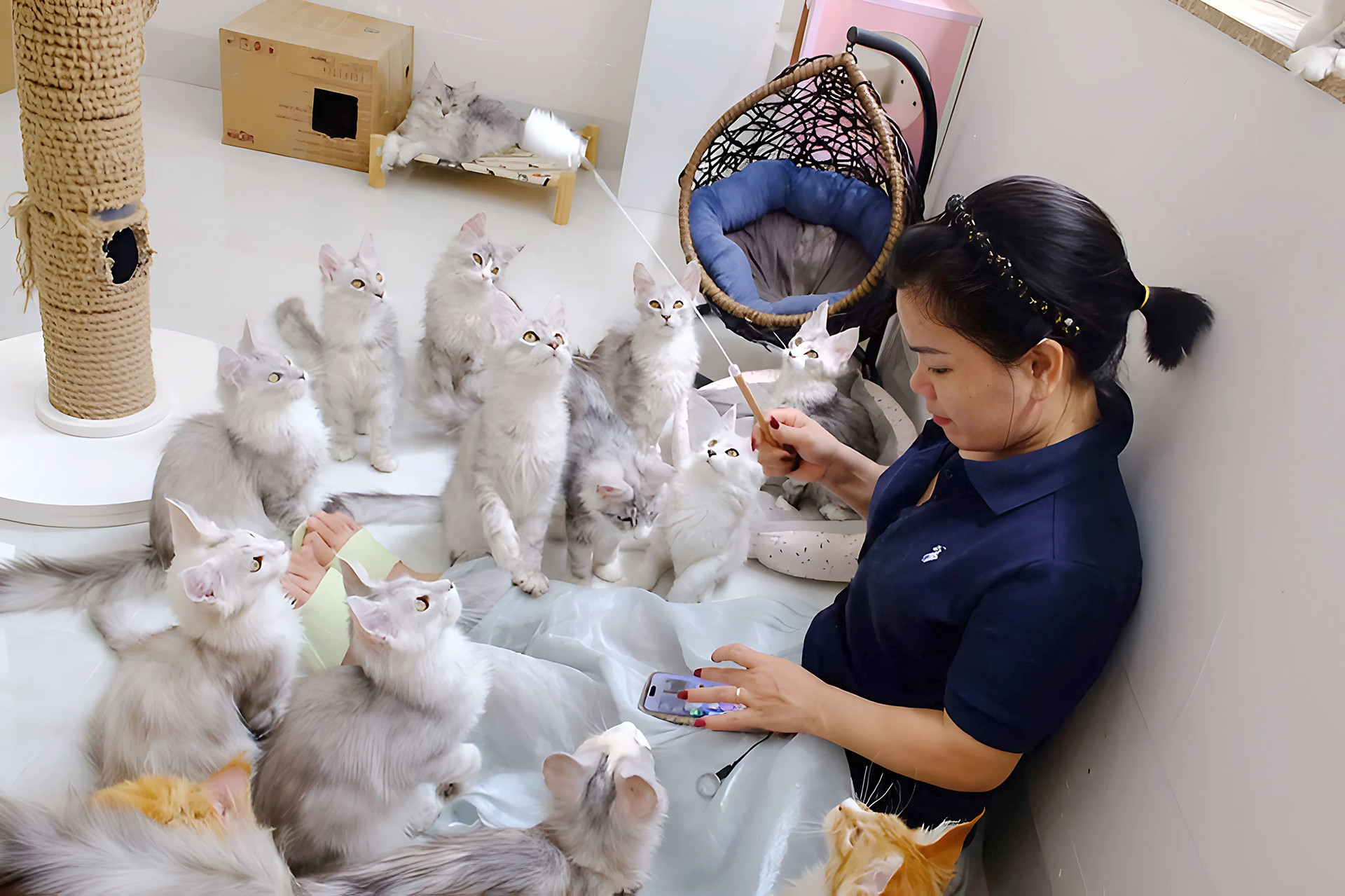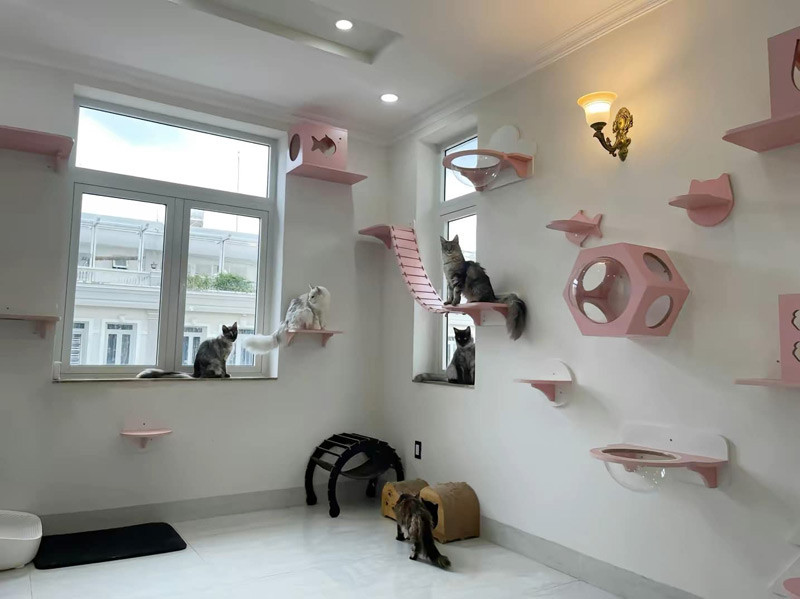
The personal online page of Ha Thi Mong Trinh, born 1995 in Binh Duong, is flooded with photos of adorable cats. Some are tiny and cute, while others are “giant,” weighing over 10 kilograms.
Stemming from her love for cats, she has been breeding and caring for them as her main job, bringing an impressive income.
Trinh graduated with a degree in preschool education and worked as a kindergarten teacher in HCM City for three years. Even when money was tight, she didn’t hesitate to spend VND10 million to buy two British shorthair cats.
One day, while scrolling through Facebook, Trinh stumbled upon a photo of a “giant” cat with unique fur and a cool face. She learned that it was a Maine Coon—a giant domestic breed not yet common in Vietnam.
“I managed to find someone selling this cat species in Vietnam. I bought a female for VND16 million (without document). After raising her for a while, I fell in love and bought a male for VND15 million,” Trinh recalled.
She never imagined that her VND31 million investment in these quirky cats would change her life and career.

The giant cat couple produced their first litter of 9 kittens. Trinh nurtured them carefully, occasionally snapping photos and sharing their cute moments on social media. Soon, young people reached out to buy her kittens for VND17-20 million each.
Digging deeper into the Maine Coon breed, Trinh saw huge potential since few people in Vietnam were breeding or selling them. After successfully selling two litters, she quit her job in HCM City and returned to Binh Duong to start a cat breeding farm.
Over the years, breeding and selling these “giant cats” has brought Trinh a remarkable income. She sells each kitten with standard colors for VND55-85 million (purebred, fully documented).
For rare-colored kittens, she can fetch up to VND200 million each. This business has brought billions in revenue.
“The cost of raising them is relatively high—about VND200-350 million a year. Just their routine vet checkups run VND20-25 million a month,” Trinh said.
Currently, Trinh raises around 70 cats of all sizes. Her breeding cats produce 2 litters a year, with Maine Coons yielding 7-10 kittens per litter.
There are four bedrooms in her house, all beautifully designed and equipped for the cats’ comfort. Trinh jokingly said: “Even our bedroom has been taken over by the cats.”
In the early days of her venture, Trinh faced many challenges. Lacking experience, she sometimes couldn’t handle new cat illnesses in time, leading to heartbreaking losses.
Each time she lost a kitten, Trinh fell into sadness and frustration, taking a while to recover emotionally.
“It’s not just about profit or loss—it’s the grief. I raise each kitten from birth, so when one passes, it hits me hard.
“Once, I lost an entire litter. The mother got sick and passed it to the kittens. Over a few days, I helplessly watched all 11 die. Afterward, I took the mom to multiple vets, finally figuring out the cause and curing her,” Trinh shared.
As time has elapsed, Trinh grew more confident. She now cares for her cats well, minimizing risks.
The “giant cat” breed always leaves Trinh in awe. They’re stunning, cool, and have cheerful, lively personalities. Over seven years, raising and tending to them has given her incredible experiences.
She’s used to staying up all night watching cats give birth. She cares for the kittens meticulously, like newborns.
She remembers their schedules clearly—milk every 4 hours, vaccinations, vet visits. Every day, she cleans them, wipes their faces, trims their nails, bathes them, and plays with them to help them adjust to new owners.
“There are so many joyful moments, but the best is watching them giving birth. Seeing them go from newborns to sturdy, playful kittens is an amazing experience,” Trinh shared.
After three months and two vaccine shots, the kittens go to their new homes. Some are reserved by future owners from birth—or even while still in the womb.
“The most important thing in this profession is passion and patience. You also need to love animals because if you don’t love or like them, you can’t take good care of them,” Trinh said.
Thanh Minh